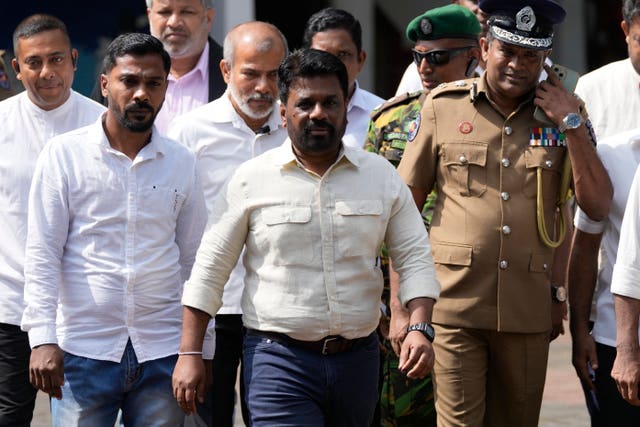
The party of Sri Lanka’s new Marxist-leaning president Anura Kumara Dissanayake took a large lead in early results from the parliamentary elections, in an apparent solid mandate for his programme for economic revival.
Mr Dissanayake’s National People’s Power Party won 15 of the 22 electoral districts whose results have been released so far by the Elections Commission.
Mr Dissanayake was elected president on September 21 in a rejection of traditional political parties that have governed the island nation since its independence from British rule in 1948.
He received just 42% of the votes, sparking questions over his party’s outlook in Thursday’s parliamentary elections.
However, the party received large increases in support less than two months into his presidency.

In a major surprise and a big shift in the country’s electoral landscape, his party won the Jaffna district, the heartland of ethnic Tamils in the north, and many other minority strongholds.
The victory in Jaffna marks a great dent for traditional ethnic Tamil parties that have dominated the politics of the country’s north since independence.
Of the 225 seats in parliament, 196 were up for grabs under Sri Lanka’s proportional representative electoral system, which allocates seats in each district among the parties according to the proportion of the votes they get.
The remaining 29 seats, called the national list seats, are allocated to parties and independent groups according to the proportion of the total votes they receive countrywide.


Why are you making commenting on The National only available to subscribers?
We know there are thousands of National readers who want to debate, argue and go back and forth in the comments section of our stories. We’ve got the most informed readers in Scotland, asking each other the big questions about the future of our country.
Unfortunately, though, these important debates are being spoiled by a vocal minority of trolls who aren’t really interested in the issues, try to derail the conversations, register under fake names, and post vile abuse.
So that’s why we’ve decided to make the ability to comment only available to our paying subscribers. That way, all the trolls who post abuse on our website will have to pay if they want to join the debate – and risk a permanent ban from the account that they subscribe with.
The conversation will go back to what it should be about – people who care passionately about the issues, but disagree constructively on what we should do about them. Let’s get that debate started!
Callum Baird, Editor of The National
Comments: Our rules
We want our comments to be a lively and valuable part of our community - a place where readers can debate and engage with the most important local issues. The ability to comment on our stories is a privilege, not a right, however, and that privilege may be withdrawn if it is abused or misused.
Please report any comments that break our rules.
Read the rules here